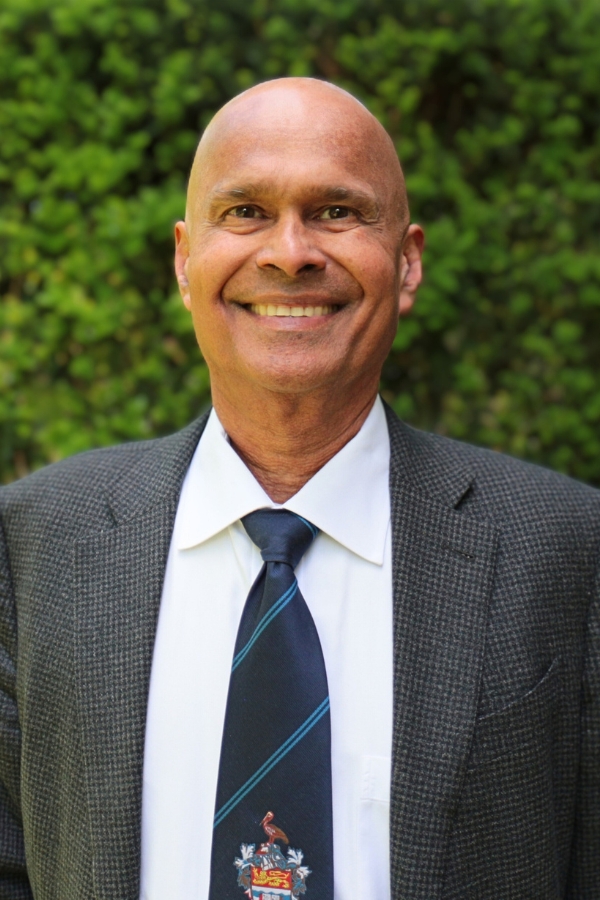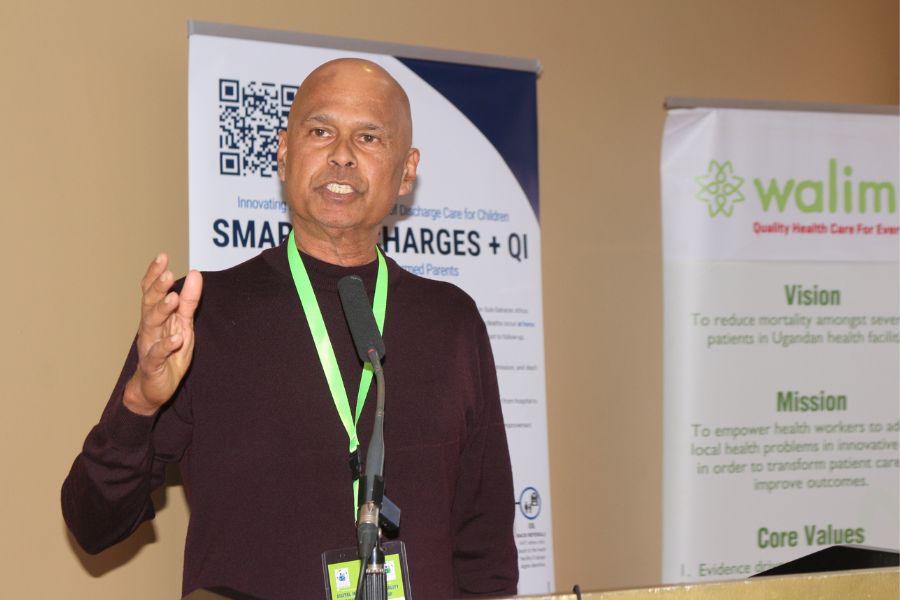Every year the University of the West Indies (UWI) in Kingston, Jamaica recognizes extraordinary individuals as part of their graduation ceremony. Among the 11 distinguished graduates to be awarded degrees this year will be Prof. Niranjan “Tex” Kissoon, an investigator at BC Children’s Hospital Research Institute (BCCHR) and professor in the Department of Pediatrics, Faculty of Medicine, University of British Columbia.

For Prof. Kissoon, the unexpected honour and recognition from UWI is a wonderful full-circle moment and opportunity to reflect on a life and career born out of modest circumstances and the generous help of so many.
Prof. Kissoon was born in a small village in Trinidad working in sugar cane and rice fields with his family. It has been a long journey from that village, to getting a loan from Trinidad to study medicine, residency and subspecialties in Canada, to being an internationally respected clinician, researcher, and educator in pediatric critical care, emergency medicine and global health. Today, Prof. Kissoon is known as a worldwide leader in global health, and was recently re-elected the president of the Global Sepsis Alliance.
“I have so many people to thank for this journey,”
says Prof. Kissoon. “There are too many to count who have helped me get to where I am today. They say it takes a village to raise a child — but if anything, my journey and work shows that it really takes the whole globe.”
His work to improve both the recognition and treatment for sepsis has informed international guidelines and helped save lives around the world. In research published in The Lancet in 2020, Prof. Kissoon showed that twice as many people are dying of sepsis than previously estimated making the condition a bigger killer than cancer or coronary disease.
“Most cases of sepsis are either preventable or treatable if recognized early, but they are also tragedies that happen too often,” says Prof. Kissoon.
“Ensuring that clinicians and patients and medical practitioners recognize the symptoms and signs and are aware how to treat them can greatly reduce the burden of this terrible condition.”
At BCCHR, Prof. Kissoon is also an investigator with the Institute for Global Health (IGH), one of Canada’s leading global health institutes committed to health equity and implementing sustainable, effective interventions to improve health. Due to the enormous global burden of sepsis, as well as its association with other big humanitarian concerns — such as antimicrobial resistance, climate change, and mass migration — developing interventions to prevent sepsis complications (like Smart Discharges) are a key priority.

IGH and much of Prof. Kissoon’s work is generously supported by the BC Children’s Hospital Foundation.
Prof. Kissoon has felt that giving back to the worldwide community has been a huge part of his responsibility. “From my work and my own background there is huge potential in every child. And so I dedicate my research and time to do the most I can for public health, and particularly for vulnerable children around the world.”
This drive to improve public health is a huge part of his efforts to encourage the UN and individual countries, including Canada, to form national action plans to recognize sepsis as the global health threat that it is. Half of adults who experience sepsis die within five years and the same number of children die shortly after discharge as in hospital, so it is essential that health-care workers and patients understand that the condition is not over after they leave the hospital. For Prof. Kissoon, setting up systems to take care of patients before, during, and after sepsis is the next moonshot in public health.
The ceremony to recognize Prof. Kissoon’s lifelong contributions to sepsis and global health and pediatric critical care will be held on the St. Augustine Campus, Trinidad from October 23 to 25.




